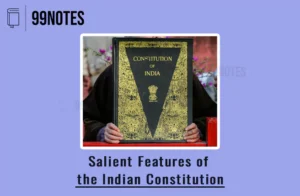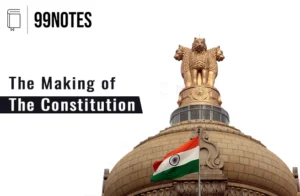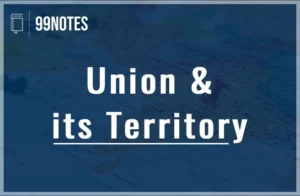21 August 2023 : The Hindu Editorial Notes PDF
The Hindu Editorial
21-August-2023
Daily Current Affairs For UPSC ,The Hindu Editorial Summary
1. The failure of hope: On the Nanguneri incident in Tamil Nadu
Topic: GS4 – Ethics
Context:
- A recent incident in Nanguneri, Tamil Nadu, involving a brutal attack on a Dalit teenager and his sister by schoolmates of a dominant caste, highlights the erosion of hope in marginalized communities.
- The attack was triggered by the boy’s complaint against classmates for harassing him based on his lower-caste status.
- Caste-based discrimination continues to persist, with incidents like using caste threads and colors to distinguish Dalit children and violent clashes.
Ethical issues related to this incident:
- Caste-Based Discrimination: Victims targeted based on their caste, perpetuating inequality.
- Violence and Dignity: Use of violence violates human dignity and respect.
- Social Injustice: Incident highlights deep-seated social injustice.
- Lack of Empathy: Attackers lack empathy towards others’ well-being.
- Education System Failure: Education fails to instill tolerance and respect.
- Ethical Leadership: Absence of leaders promoting positive values.
- Institutional Responsibility: Institutions failing to ensure safe environments.
- Norms and Prejudices: Societal norms contribute to discrimination.
- Ineffective Conflict Resolution: Violence used instead of ethical resolution.
- Human Rights Violation: Attack infringes on fundamental human rights.
What values should administrator have to deal with such incidents?
- Empathy: Understanding the feelings and perspectives of all parties involved to make informed and compassionate decisions.
- Fairness: Ensuring that all individuals are treated equitably, regardless of their background or caste.
- Justice: Upholding the principles of justice by ensuring accountability for wrongdoings and promoting a sense of fairness.
- Integrity: Demonstrating honesty and ethical conduct in all actions and decisions, serving as a role model for others.
- Inclusivity: Valuing diversity and working towards creating an inclusive environment that respects all individuals’ rights and identities.
- Courage: Displaying moral courage to confront issues, challenge prejudices, and address underlying problems head-on.
- Respect: Treating all individuals with respect and dignity, regardless of their caste or social status.
- Responsibility: Recognizing the responsibility to protect and support marginalized communities and individuals.
- Sensitivity: Approaching situations with sensitivity and cultural awareness to avoid exacerbating tensions.
- Long-Term Vision: Developing and implementing sustainable measures to prevent such incidents in the future.
Model question: A Dalit teenager and his sister were brutally attacked by their schoolmates from a dominant caste, underscores the persistent challenge of caste-based discrimination and violence in Indian society. In the context of this incident, analyze the ethical considerations related to the incident. Additionally, suggest strategies that educational institutions and local administrations can adopt to ensure the protection and empowerment of marginalized communities in India. (GS4 – Answer in 250 words – 20 Marks)
2. Criminal law Bills renaming is needless meddling.
Topic: GS2 – Indian polity
Context:
- Three new Bills presented in Parliament recently with unfamiliar names: Bharatiya Nyaya Sanhita (replacing Indian Penal Code), Bharatiya Nagarik Suraksha Sanhita (replacing Code of Criminal Procedure), and Bharatiya Sakshya Bill (replacing Indian Evidence Act).
- Article 348 of the Constitution mandates authoritative texts of Acts to be in English.
- Despite the body of the Bills being in English, naming them in Hindi raises concerns.
Issues with the renaming of bills:
- Unfamiliarity: New names are unfamiliar to most citizens and may hinder understanding and acceptance.
- Constitutional Conflict: Titles in Hindi conflict with Article 348, which mandates authoritative texts in English.
- Language and Identity: Language is tied to people’s identities, as seen in India’s State divisions.
- Historical Sensitivity: Past protests against imposing Hindi as the sole official language highlight historical sensitivities.
- Linguistic Dominance: Using Hindi names can be perceived as privileging the majority language over minority languages.
- Anxiety and Imposition: Pushing Hindi as the ‘national language’ and introducing Hindi-only forms triggers apprehensions.
- Inclusivity Concerns: Elevating Hindi may marginalize other languages, contradicting diversity principles.
- Size-Based Argument: Justifying Hindi’s priority based on its larger speaker base raises fairness questions.
- Legal Language Shift: Replacing English, the language of law, could impact clarity and accuracy in legal processes.
- Common Law System: English is integral to maintaining common law traditions, precedents, and accuracy.
- Recommendation Needed: A review of names is essential to align with legal norms and uphold linguistic diversity.
3. Why Shimla is crumbling.
Topic: GS3 – sustainable development.
Recent Rain-Related Havoc in Himachal Pradesh:
- Heavy rains caused flash floods in Summer Hill and a temple collapse leading to over 15 deaths.
- Landslides destroyed buildings in Krishnanagar, claiming two lives and damaging roads.
Reasons for recent floods in Himalayan region:
- Heavy Rains: Intense rainfall triggers floods in the Himalayan region.
- Infrastructure Failures: Poorly planned development leads to increased vulnerability.
- Unwise Construction: Buildings erected in flood-prone areas and near water sources.
- Lack of Climate Consideration: Development lacks climate-resilient strategies.
- Shifting Weather Patterns: IPCC warns of extreme climate events and altered rainfall patterns.
- Inadequate Planning: Development plans lack climate action focus.
- Absence of Zoning: Lack of zonal and sub-zonal planning contributes to disaster risk.
- Human Intervention: Changes in land use without proper consideration of climate impacts.
- Infrastructure Above Waterways: Major structures constructed atop water springs and channels.
- Lack of Oversight: Town and country planning department oversees development without elected city government involvement.
Way forward:
- Climate-Smart Infrastructure: Prioritize climate-resilient development to withstand extreme weather events.
- Comprehensive Planning: Develop comprehensive city plans that consider climate risks and impacts.
- Zonal and Sub-Zonal Approach: Implement zoning strategies based on geological data for balanced growth.
- Community Engagement: Involve local communities in development decisions, especially those near water sources.
- Climate Action Plans: Integrate climate action plans into development strategies.
- Geological Considerations: Base expansion decisions on solid geological and structural foundations.
- Preservation Efforts: Focus on preserving unique geological features while allowing vertical expansion in suitable areas.
- Inclusive Oversight: Involve elected city government in planning to ensure democratic oversight.
- Adaptive Policies: Create policies that adapt to changing climate patterns and extreme events.
Source: https://www.thehindu.com/opinion/op-ed/why-shimla-is-crumbling/article67216631.ece
Model question: How can the Himalayan region address recent flood incidents and infrastructure vulnerabilities through climate-resilient development? Provide key strategies and measures for sustainable planning in this context.
4. Crafting safe Generative AI systems.
Topic: GS3 – Science and technology.
Generative AI Revolution and Potential:
- Predicted economic impact of Large Language Models (LLMs) is at $2.6 trillion-$4.4 trillion annually.
- Jugalbandi Chatbot pilot in rural India demonstrates potential universal translation capabilities.
- Jugalbandi aids in democratizing information access and improving economic well-being.
Risks Associated with AI Revolution:
- Artificial Entities: AI creates entities resembling humans.
- Misuse: Bad actors exploit AI for misinformation, fraud, hate speech.
- Impact: AI-generated images affect markets, fake users influence politics.
- Authentication: Cloned AI voices bypass security measures.
- Election Manipulation: AI-generated deepfakes impact elections.
- Privacy Invasion: AI collects and analyzes personal data, raising privacy concerns.
- Job Disruption: Automation by AI leads to job displacement in various sectors.
- Bias and Discrimination: AI algorithms can inherit biases, perpetuating discrimination.
- Dependency on AI: Overreliance on AI systems can result in vulnerabilities and errors.
- Ethical Dilemmas: AI decisions raise ethical questions, like autonomous vehicles’ choices.
Way Forward for Addressing AI Risks:
- Regulation & Oversight: Implement strong regulations and oversight for AI development.
- Ethical Frameworks: Adopt ethical guidelines for AI usage and decision-making.
- Transparency: Ensure transparent AI algorithms and processes.
- Bias Mitigation: Detect and mitigate biases in AI algorithms.
- Education & Awareness: Educate public, policymakers, and businesses about AI risks and benefits.
- Global Collaboration: Collaborate internationally for unified AI standards.
- Continuous Monitoring: Regularly assess AI systems’ performance and risks.
- Adaptive Regulations: Develop flexible regulations for evolving AI landscape.
Source: https://www.thehindu.com/opinion/op-ed/crafting-safe-generative-ai-systems/article67216687.ece
Model Question: Examine the risks posed by the AI revolution and suggest measures to ensure responsible and secure AI deployment. How can ethical concerns and technological advancement be balanced in the era of AI?
For Enquiry

21 August 2023 : Daily Answer Writing

21 August 2023 : Daily Quiz

21 August 2023 : PIB

21 August 2023 : Indian Express

21 August 2023 : The Hindu Editorial Notes PDF

21 August 2023 : Daily Current Affairs

Salient Features of the Indian Constitution

Science Reporter July 2023

The Making of the Constitution

Union and its Territory UPSC
mains answer writing 21 August 2023 : Daily Answer Writing Mains Answer Writing
One of the key components of these exams is the written test, which consists of…
Daily Quiz 21 August 2023 : Daily Quiz 21 August 2023 : Daily Quiz…
August PIB 2023 21 August 2023 : PIB PRESS INFORMATION BUREAU
21-August -2023
Daily Current Affairs For UPSC ,The PIB ( Press Information…
August 2023 Indian Express 21 August 2023 : Indian Express Indian Express
21-August–2023
The Indian Express, CSE candidates can stay informed about current…
August- The Hindu Editorial 21 August 2023 : The Hindu Editorial Notes PDF The Hindu Editorial
21-August-2023
Daily Current Affairs For UPSC ,The Hindu Editorial Summary
Facebook-f
Twitter
Youtube
1. The…
August Daily Current Affairs 21 August 2023 : Daily Current Affairs Daily Current Affairs
21-August-2023
Daily Current Affairs For UPSC ,Daily Current affairs of The hIndu…
Polity Salient Features of the Indian Constitution The Indian Constitution is considered unique in its contents and spirit worldwide. It has the distinction…
Science Reporter Science Reporter July 2023 Article 1: INDIAN CLASSICAL MUSIC
The origin of Indian classical music can be traced back to the Vedas…
Polity The Making of the Constitution A Constitution is a set of rules, written or unwritten, acceptable to all the people living together…
Indian Economy Union and its Territory UPSC Considering the vast diversity of this subcontinent, the framers of the Indian constitution created a…



